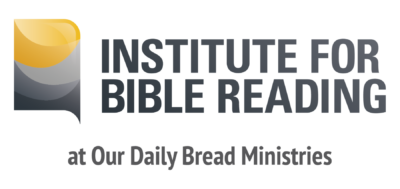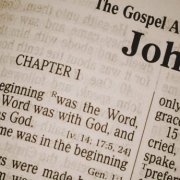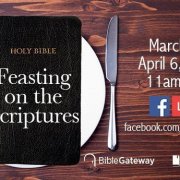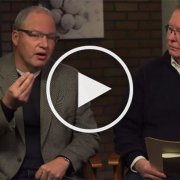What We’re Reading: May 2019
From time to time we’ll share some of the interesting and thought-provoking content from around the Internet that we come across during our work.
Have you come across any great Bible-related content lately? Leave a link in the comments below!
*Note: Sharing doesn’t necessarily imply 100% agreement with the article or endorsement of the author.
More on Reading the Bible by RJS, Patheos Blog
Patheos blogger RJS comments on John Polkinghorne’s exploration of ambiguity found throughout the Bible. It’s a good reminder that Scripture is not an answer book bound by simple terms of good guys/bad guys, and black/white, but rather shows us that God’s work in the world most often takes place in the midst of “many shades of grey.”
The Old Testament and the Church – Part 1 and Part 2 from the Essential Church Podcast
It’s no secret that the Old (or First) Testament is diminishing in the life of the church. One scholar has even written a book titled The Old Testament is Dying. This podcast, hosted by a group of pastors from New Life Church in Colorado, explores the massive importance of the First Testament both as a prelude to Christ and as a window into God’s character and mission from the beginning.
Moving through the Maze: Understanding Bible Translation by Brian Russell
NIV, NLT, KJV, ESV. The number of translations available to us in English can be a bit dizzying, and many of us simply end up using what our friends are using. Asbury Seminary prof. Brian Russell gives a brief and basic introduction to how Bible translations work. Among other things he discusses the difference between paraphrases and translations, formal equivalence (sometimes called word-for-word) vs. dynamic equivalence (or meaning-for-meaning) translations, and how “literal” is not a good word for describing a translation.
Theology of the Future by N. T. Wright, Christianity Today Magazine
New Testament scholar N. T. Wright wants us to break down the silos. As academic specialization increases, Wright observes that the philosophers, theologians, and Biblical studies experts of our time all operate in isolation from one another rather than in shared conversation. “Each of these three disciplines has a vital role to play in the vocation of Christian thought,” Wright argues, and faithfully addressing the challenges of our day calls for more cooperation and collaboration across these disciplines.








